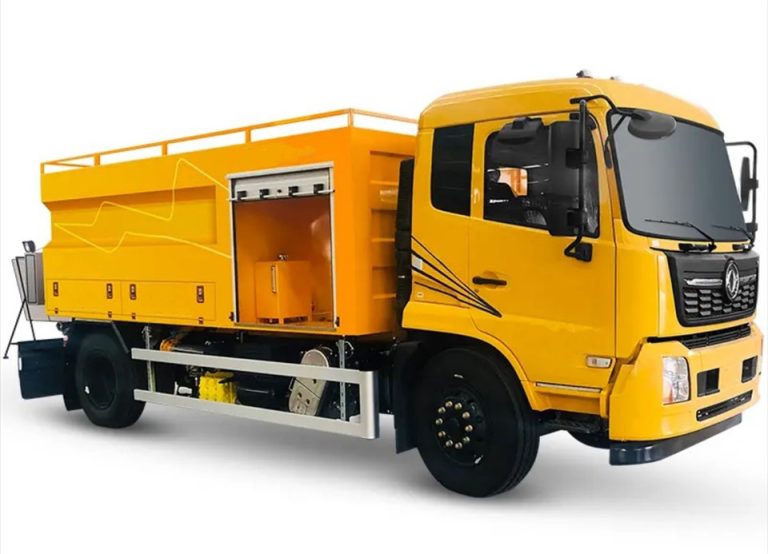Four wheel drive RVs are increasingly popular among adventure seekers and road-trip enthusiasts. These vehicles, equipped with advanced traction systems, provide a unique combination of mobility and comfort, allowing travelers to navigate both on and off the beaten paths. In this article, we will explore the advantages, types, and features of four wheel drive RVs, as well as practical tips for choosing and maintaining your vehicle.
Understanding Four Wheel Drive RVs
What is a Four Wheel Drive RV?
A four wheel drive (4WD) RV is a recreational vehicle that has a drivetrain capable of delivering power to all four wheels simultaneously. This system enhances traction, stability, and control, especially on rough terrains. These vehicles are ideal for those who love to explore remote locations, including forests, mountains, and national parks.
Importance of Four Wheel Drive in RVs
The four wheel drive capability is important for several reasons:
- Improved Traction: 4WD RVs can navigate slippery and uneven surfaces with ease.
- Enhanced Safety: Better control in adverse weather conditions helps prevent accidents.
- Expanded Exploration: Access to off-road trails and remote campgrounds increases travel possibilities.
- Comfort: A smooth ride on challenging terrains minimizes discomfort during travel.
Types of Four Wheel Drive RVs
Class A Four Wheel Drive RVs
Class A motorhomes are large, luxurious RVs built on a commercial truck chassis. Some models come equipped with four wheel drive capabilities, making them suitable for affluent travelers who want to experience off-road adventures.
Features of Class A 4WD RVs
- Spacious interiors with multiple slide-outs
- High-end amenities
- Powerful engines for steep inclines
Class B Four Wheel Drive RVs
Class B RVs, also known as camper vans, are compact and versatile. Their four wheel drive systems make them highly maneuverable, perfect for city driving and off-road trips alike.
Advantages of Class B 4WD RVs
- Easy to park and drive
- Fuel-efficient compared to larger RVs
- Can fit into standard parking spaces
Class C Four Wheel Drive RVs
Class C RVs combine the features of Class A and Class B models. They typically offer more living space than Class B and are more affordable than Class A. Many Class C models are now available with 4WD options.
Benefits of Class C 4WD RVs
- Ample and flexible living space
- Various layouts for different traveler needs
- Great for families and groups
Key Features to Look for in a Four Wheel Drive RV
Drivetrain and Transmission
When selecting a 4WD RV, the drivetrain plays a significant role. Look for:
- Full-Time vs. Part-Time 4WD: Full-time 4WD provides better traction at all times. Part-time is usually engaged when needed.
- Low Range Gear: A low range option helps tackle steep inclines and rough terrains.
- Transmission Type: Automatic transmissions are easier to handle, while manual options can offer more control.
Suspension System
Good suspension is essential for off-road capability and comfort. Consider:
- Upgraded Shock Absorbers: Look for heavy-duty models designed for off-road conditions.
- Independent Suspension: This feature enhances ride quality by allowing each wheel to move independently.
Tires and Wheel Size
The right tires improve traction and handling. Specifications to consider include:
- Tire Type: All-terrain tires are best for mixed surfaces.
- Wheel Size: Larger wheels can provide better ground clearance.
Practical Tips for Choosing a Four Wheel Drive RV
Evaluate Your Travel Needs
Before making any purchase, consider your travel goals:
- Destination: Are you hitting the highway or exploring off-road trails?
- Capacity: How many people will be traveling with you?
- Comfort Preferences: What amenities are essential for your trips?
Research Brands and Models
Not all 4WD RVs are created equal. Research various manufacturers and models to compare features, warranties, and reliability.
Seek Reviews and Recommendations
Read reviews from other RV owners and consider joining forums or social media groups dedicated to RV traveling. Recommendations from fellow enthusiasts can guide your decision-making process.
Maintenance Tips for Four Wheel Drive RVs
Regular Inspections
To ensure your 4WD RV is ready for off-road adventures, conduct regular inspections:
- Tires: Check for proper tire pressure and tread wear.
- Fluids: Inspect engine oil, transmission fluid, and differential fluid levels.
- Brakes: Ensure brakes are functioning optimally, especially in off-road conditions.
Seasonal Preparation
Prepare your RV for seasonal changes:
- Winterization: Protect your plumbing system from freezing temperatures.
- Summer Readiness: Ensure your air conditioning system is in good working condition.
Exploring Off-Road Destinations with a Four Wheel Drive RV
Best Off-Road Destinations
| Destination | Location | Description |
|---|---|---|
| Moab | Utah | Known for its stunning red rock formations and extensive off-road trails. |
| Big Bend National Park | Texas | Offers rugged terrain and beautiful landscapes for exploration. |
| Anza-Borrego Desert State Park | California | Features desert landscapes, wildflowers, and numerous dirt roads. |
Planning Your Off-Road Trip
When planning an off-road trip, consider the following:
- Research Trails: Understand the difficulty and length of the trails.
- Check Weather Conditions: Ensure favorable weather for your journey.
- Pack Essentials: Bring along tools, recovery gear, and first-aid supplies.
Common Myths About Four Wheel Drive RVs
Myth: Four Wheel Drive is Only for Off-Roading
While 4WD is essential for off-road adventures, it also enhances performance on highways, particularly in adverse weather conditions like rain or snow.
Myth: 4WD RVs are More Difficult to Drive
Modern 4WD RVs are designed with user-friendliness in mind, often featuring automatic transmissions and responsive steering, making them easier to handle than older models.
FAQs about Four Wheel Drive RVs
1. What is the main advantage of a four wheel drive RV?
The main advantage is enhanced traction and stability, allowing for better control in various terrains and adverse weather conditions.
2. Are four wheel drive RVs more expensive?
Generally, 4WD RVs tend to be more expensive than their two-wheel drive counterparts due to their added capabilities and features.
3. How do I maintain the four wheel drive system?
Regular maintenance includes fluid checks, inspections of the driveline components, and ensuring proper tire pressure and tread wear.
4. Can I use a four wheel drive RV for daily driving?
Yes, 4WD RVs can be used for daily driving. Their versatility makes them suitable for both on-road and off-road travel.
5. How does a four wheel drive system affect fuel efficiency?
A 4WD system can lead to slightly lower fuel efficiency compared to 2WD, particularly when engaged. However, many modern systems are designed to minimize the impact on fuel consumption.
6. What should I look for in a four wheel drive RV?
Key factors include drivetrain type, engine power, suspension quality, tire specification, and the overall layout and amenities appropriate for your travel needs.



